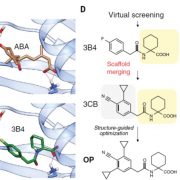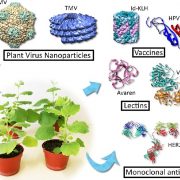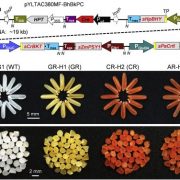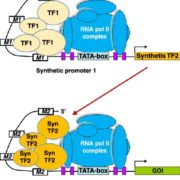Review. Beyond natural: Synthetic expansions of botanical form and function (New Phytol.)
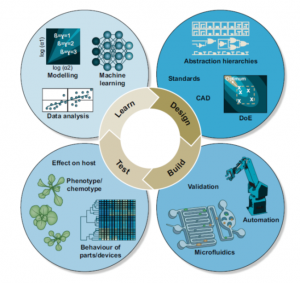 “The goal of synthetic biology is to advance the ability to dependably and consistently design or reprogram living organisms and to fabricate products from biologically-derived materials.” In this review, Patron focuses on the principles derived from engineering that are foundational to synthetic biology. She describes the central importance of standardization of all aspects, and strategies to control gene expression through synthetic inducers and light as well as synthetic gene circuits. Protein engineering can occur through directed evolution or rational design, two seemingly opposite tactics to arrive at the same outcome. Engineering metabolism in plants relies on metabolic modelling which requires an understanding of metabolite flux but is complicated by separation of reactions in different cellular compartments and even tissues. However, its compartmentalized nature can also be exploited for example to sequester toxic intermediates from synthetic pathways from the rest of the cell or concentrate enzyme substrates to increase reaction efficiency. The author provides numerous examples and discusses the potential applications of plant synthetic biology, and concludes by highlighting the need to integrate “systems biology, computational modelling and machine learning into plant biology.” (Summary by Mary Williams) New Phytol. 10.1111/nph.16562
“The goal of synthetic biology is to advance the ability to dependably and consistently design or reprogram living organisms and to fabricate products from biologically-derived materials.” In this review, Patron focuses on the principles derived from engineering that are foundational to synthetic biology. She describes the central importance of standardization of all aspects, and strategies to control gene expression through synthetic inducers and light as well as synthetic gene circuits. Protein engineering can occur through directed evolution or rational design, two seemingly opposite tactics to arrive at the same outcome. Engineering metabolism in plants relies on metabolic modelling which requires an understanding of metabolite flux but is complicated by separation of reactions in different cellular compartments and even tissues. However, its compartmentalized nature can also be exploited for example to sequester toxic intermediates from synthetic pathways from the rest of the cell or concentrate enzyme substrates to increase reaction efficiency. The author provides numerous examples and discusses the potential applications of plant synthetic biology, and concludes by highlighting the need to integrate “systems biology, computational modelling and machine learning into plant biology.” (Summary by Mary Williams) New Phytol. 10.1111/nph.16562



